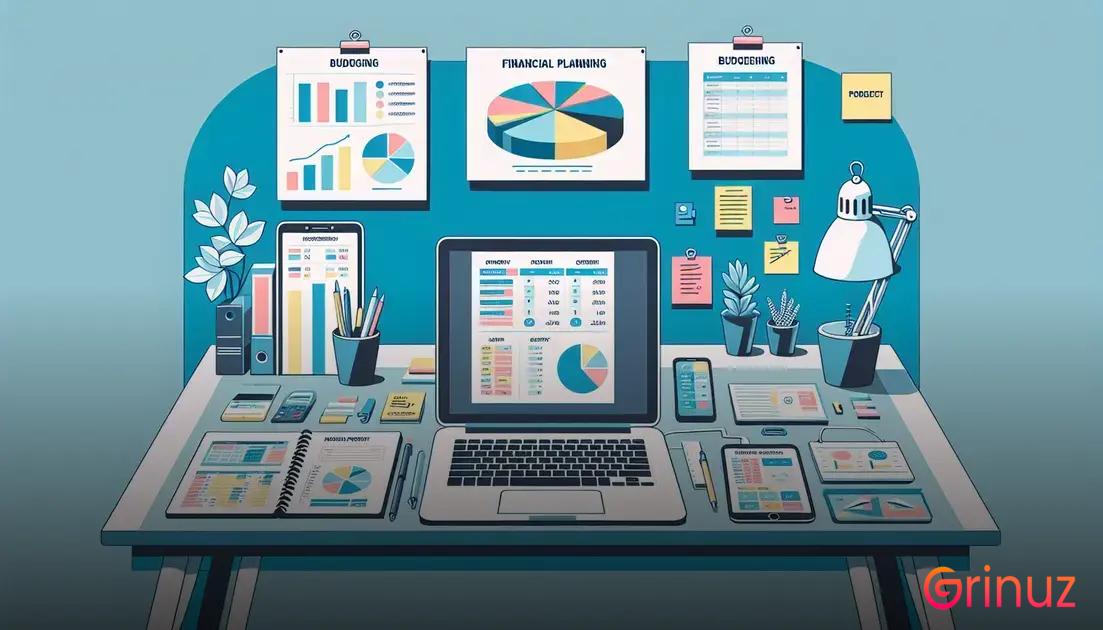In today’s fast-paced world, managing credit cards efficiently is crucial for maintaining financial stability. Best practices for managing credit cards involve understanding your card terms, tracking your expenditures, and making more than the minimum payment every month.
Understand your credit card terms
When you get a credit card, it’s crucial to fully understand the terms and conditions provided by the issuer. These terms outline key details such as the annual percentage rate (APR), which is the interest rate applied to your outstanding balance. You’ll also find information on fees and penalties, including late payment fees, over-limit fees, and balance transfer fees.
Another vital aspect is understanding how the grace period works. This is the period during which you can pay your balance in full to avoid interest charges. Be sure to check the terms for details on how long this period lasts and any actions that might shorten or cancel it.
Your credit card terms will also define your credit limit, which is the maximum amount you can borrow. Exceeding this limit can result in additional fees and may impact your credit score. Additionally, learn about the issuer’s rewards program if applicable. Knowing how to earn, redeem, and use rewards can significantly enhance the benefits you get from your credit card.
Lastly, familiarize yourself with the terms for cash advances. These usually come with higher interest rates and immediate fees, making them a costly option for obtaining cash quickly. Always read and understand your credit card terms thoroughly to ensure you use your card wisely and avoid unnecessary costs.
Track your spending habits

Developing a clear understanding of your spending habits is crucial for managing credit cards effectively. Track every purchase diligently, whether it’s a small coffee or a larger expenditure. Use digital tools or apps to categorize expenses; this will highlight areas where you might be overspending.
Maintaining a Spending Journal: Write down each expense manually or digitally. This practice helps identify patterns in your spending behavior, making it easier to adjust accordingly.
Set Spending Limits: Implement personal spending limits for different categories such as dining, entertainment, and groceries to ensure you stay within budget. Regular monitoring and adjustments will keep your financial health optimal.
Analyze Monthly Statements: Thoroughly review your monthly credit card statements to detect any unusual or unplanned charges. This vigilance helps prevent fraud and ensures accuracy in your spending records.
Pay more than the minimum
When you only pay the minimum amount due on your credit card, interest continues to accumulate on the remaining balance. To optimize your financial health, it’s essential to avoid this costly mistake. Paying more than the minimum helps to reduce interest charges and pay off your debt faster.
Let’s break it down: if your minimum payment is $25, this amount might only cover the interest, fees, and a small fraction of the principal balance. By paying $50 instead, you attack the principal more aggressively, decreasing the amount of accrued interest over time.
Consider automating higher payments whenever possible. This ensures consistency and helps prevent late fees or missed payments that can impact your credit score. Additionally, review your budget to find extra funds that can be allocated towards your credit card debt. Any extra money, such as bonuses or tax refunds, should be used strategically to pay down existing balances.
Create a Payment Strategy
Developing a personalized payment strategy can significantly impact your financial health. Prioritize paying down cards with the highest interest rates first, a method known as the avalanche approach. Alternatively, the snowball method involves paying off the smallest debts first, providing quick wins and motivation to continue reducing debt.
By consistently paying more than the minimum, you are actively working to improve your financial situation, setting yourself up for a better future.
Use rewards and benefits wisely

Rewards programs and benefits are some of the best features offered by credit cards. To truly optimize your financial health, understanding how to use them wisely is crucial. Start by familiarizing yourself with the rewards structure. Some cards offer cashback, points, or miles for every dollar spent. Know which purchases earn the most rewards and try to use your card for these transactions.
Additionally, many cards come with specific benefits such as travel insurance, purchase protection, and extended warranties. Make sure to take advantage of these perks when shopping or planning trips, as they can add significant value.
However, it’s essential to avoid the temptation of overspending to earn rewards. This can lead to accumulating debt that outweighs the benefits. Instead, align your spending with your budget and financial goals to ensure you’re truly benefiting from your credit card’s rewards program.
Regularly review your earned rewards and redeem them before they expire. Some cards offer optimal redemption values for specific categories, like travel or gift cards, so maximize your returns by choosing the best redemption option.
Being proactive and strategic about using rewards and benefits can significantly enhance your credit card experience and contribute to better financial health.
Monitor your credit report
One crucial aspect of maintaining financial health is to monitor your credit report regularly. Credit reports are detailed records of your credit history and play a significant role in determining your credit score. Access your credit report from all three major bureaus: Equifax, Experian, and TransUnion, at least once a year. Look for inaccuracies, outdated information, or fraudulent activities that could negatively impact your credit score.
Review Your Report Thoroughly
When reviewing your credit report, pay attention to personal information, account history, credit inquiries, and public records. Ensure all details are correct. If you find any errors, dispute them immediately. Correcting inaccuracies can improve your credit score significantly.
Watch for Fraudulent Activities
Fraudulent activities, such as identity theft, can cause severe damage to your credit. Monitoring your credit report helps you spot unauthorized accounts or transactions promptly. Report any suspicious activities to the credit bureaus and take immediate action to mitigate potential risks.
Utilize Credit Monitoring Services
Consider using credit monitoring services to keep you informed about key changes in your credit report. These services provide alerts for new accounts, credit inquiries, and significant balance changes, helping you react quickly to potential issues.
Regularly monitoring your credit report not only helps in identifying errors and fraud but also gives you an insight into your overall financial health. By staying informed, you can take proactive steps to optimize your credit score and achieve better financial stability.





